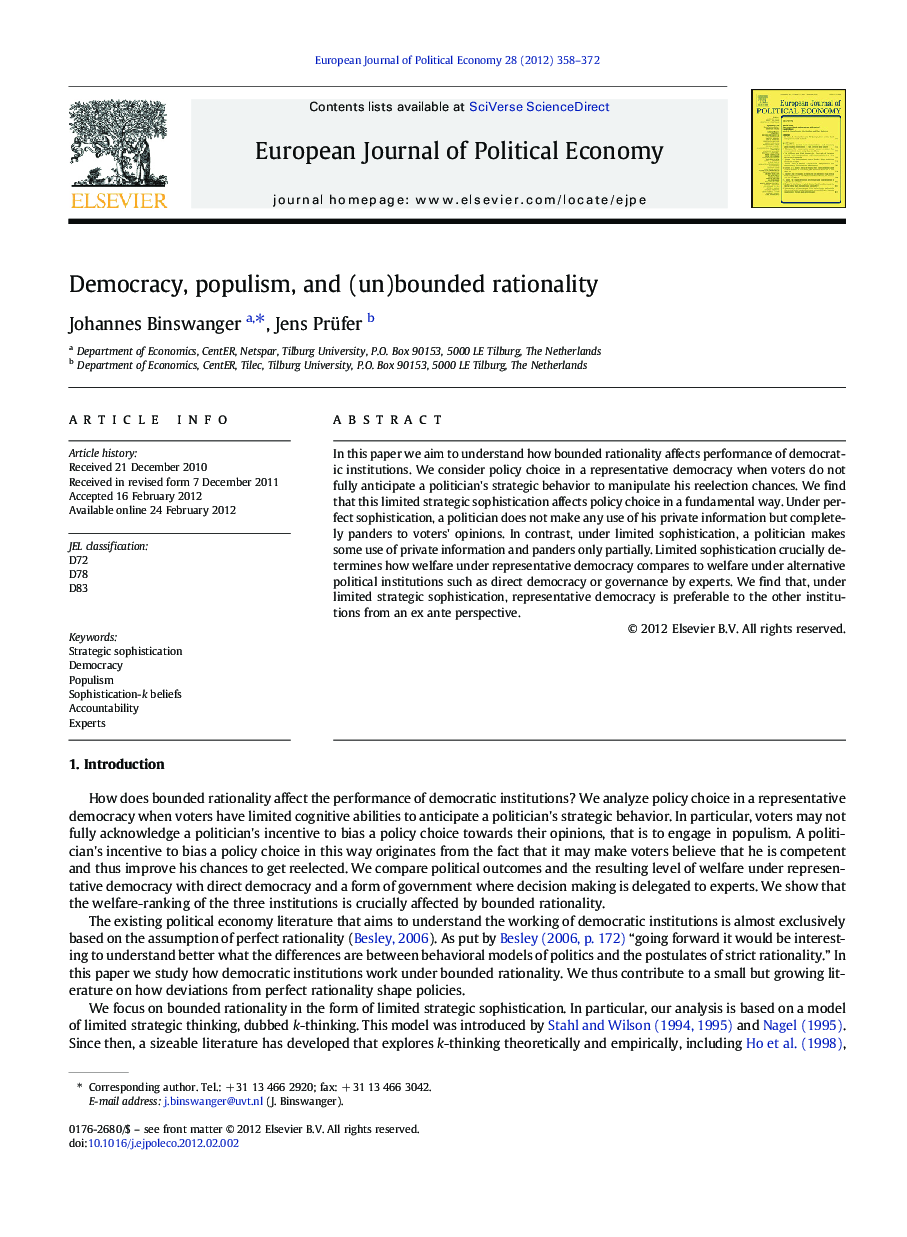| Article ID | Journal | Published Year | Pages | File Type |
|---|---|---|---|---|
| 5068152 | European Journal of Political Economy | 2012 | 15 Pages |
In this paper we aim to understand how bounded rationality affects performance of democratic institutions. We consider policy choice in a representative democracy when voters do not fully anticipate a politician's strategic behavior to manipulate his reelection chances. We find that this limited strategic sophistication affects policy choice in a fundamental way. Under perfect sophistication, a politician does not make any use of his private information but completely panders to voters' opinions. In contrast, under limited sophistication, a politician makes some use of private information and panders only partially. Limited sophistication crucially determines how welfare under representative democracy compares to welfare under alternative political institutions such as direct democracy or governance by experts. We find that, under limited strategic sophistication, representative democracy is preferable to the other institutions from an ex ante perspective.
⺠We consider policy choice in a democracy where voters are boundedly rational. ⺠Voters do not fully understand a politician's incentive to pander to get reelected. ⺠The more bounded voters' rationality, the lower a politician's incentive to pander. ⺠Under bounded rationality, representative democracy leads to highest welfare. ⺠Direct democracy and delegation to independent agents lead to lower welfare.
